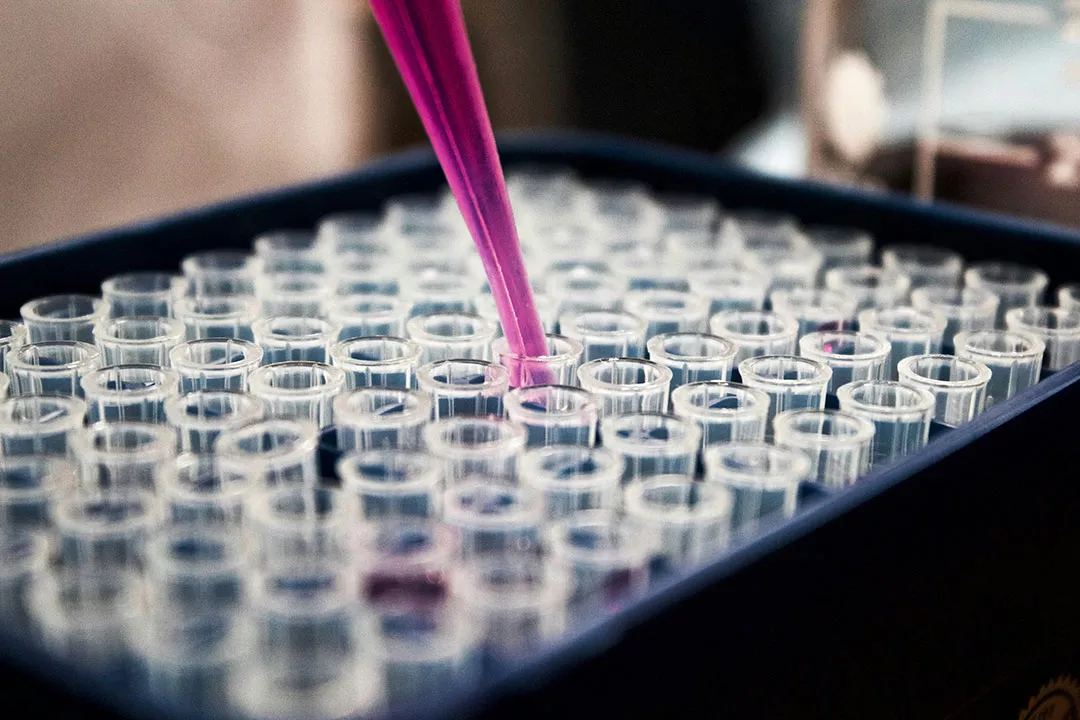Vagina gets itchy after sex
3314
Genital itching after sex can result from irritation, lack of lubrication, allergies, or infections. Causes and treatments vary by gender.

My vagina gets itchy AFTER SEX!
Is that normal if you feel itchy after sex? WHY? What’s happened? Let’s see!!
The vagina and vulva are susceptible, and many things can irritate the delicate region. Causes might include dryness, external irritants, and infections.
Genital itching after sex can occur due to several factors, including irritation, insufficient lubrication, allergies, or infections. These causes may differ between males and females, leading to varying treatment approaches.
Understanding the underlying reason is essential for finding the appropriate solution and ensuring sexual health. Additional information on particular causes and therapies is available.
If you have symptoms or want to discuss sexual health, you can consult with doctors at the PULSE Clinic. To book an appointment, please email us at info.bkk@pulse-clinic.com or contact us on your preferred platform.
![]() +66 65 237 1936
+66 65 237 1936  @PULSEClinic
@PULSEClinic ![]() PulseClinic
PulseClinic

Why Am I Itchy After Sex and What Can I Do About It?
Many people have genital itchiness following masturbation or partner intercourse. Dry skin, inadequate lubrication, or excessive friction can all produce brief irritation, which usually goes away without therapy. Vaginal itching that comes alongside other symptoms usually needs medical treatment.
Mild itching and discomfort may be transient and cure themselves. Common reasons include irritation from condoms, lubricants, and spermicides, as well as allergic responses to these substances.
Persistent or severe itching may indicate an underlying problem that needs to be treated. Itching can be a sign of a yeast infection, a sexually transmitted disease (STD) like chlamydia or gonorrhea, or other skin disorders.
Itching accompanied by a rash, odd discharge, discomfort, or other uncommon symptoms should be treated medically. A healthcare practitioner can assist in determining the underlying reason and providing therapeutic recommendations.
Vaginal itching after sexual activity
Vaginal irritation that occurs on occasion is unlikely to be cause for concern. Vaginal irritation may result from a lack of lubrication or excessive friction. If this is the case, refraining from masturbation or intercourse for a few days would most likely alleviate symptoms. Itching that continues or is accompanied by other symptoms may suggest an allergic response or infection.

Dryness
Itching after sex is often caused by a lack of moisture. It might be caused by dry skin on the external genitalia (vulva) or within the vaginal canal. Dry skin can peel and itch, increasing your chances of discomfort and chafing during sex.
Some people are predisposed to dry skin or have a skin disorder like eczema. Overwashing or utilizing "feminine hygiene" products can also cause skin dryness. The most prevalent reason for vaginal dryness is hormonal changes, which occur after menopause and delivery.
Other reasons for vaginal dryness include:
- Not becoming aroused during sex.
- Certain drugs, such as birth control pills and antidepressants,
- irritants like perfumes and soaps
- various medical diseases, such as diabetes and Sjögren's syndrome
- oophorectomy
In addition to itching, the symptoms of vaginal dryness include:
- dyspareunia, or discomfort during penetration
- Urinary frequency or urgency
- Urinary tract infections (UTIs)

Latex allergy
Latex allergy is a response to the proteins contained in latex. You may have a response after coming into touch with any latex-containing product, including condoms.
Latex allergies usually induce a localized response or symptoms in the area where the substance came into contact with the body. Symptoms may include:
- itching and redness
- bumps
- Swelling and hives
- A rash resembling poison ivy
People with feminine anatomy are more prone to having a systemic or whole-body response. This is because the vaginal mucus membranes absorb latex proteins faster than the penile membranes.
Systemic symptoms might include:
- Hives or swelling in other parts of the body.
- Flushed skin
- Nasal congestion
- A runny nose
- A scratchy throat
- Watery eyes.
Anaphylaxis is a severe, acute allergic reaction that can occur in those who are particularly sensitive to latex.

Semen allergy
Seminal plasma hypersensitivity, often known as semen allergy, is an uncommon cause of allergic responses to the proteins in semen. It is conceivable to have an allergic reaction to one partner but not another or to react unexpectedly after sex with a long-term relationship.
Symptoms of a semen allergy can appear in any region of the body that comes into contact with ejaculate, including the vulva, vagina, anus, and mouth. Symptoms generally appear within 10 to 30 minutes of contact. They are identical to those seen in vaginitis and some STDs.
In addition to itching, sperm allergy symptoms include:
- pain
- burning
- swelling
- redness

pH imbalance
pH is a measure of a substance's acidity or alkalinity. Trusted Source is rated on a scale of 0 to 14. Your vaginal pH should range between 3.8 and 4.2. This acidity is a protective barrier, preventing unwanted bacteria and yeast from growing.
Sexual activity, whether solo or with a partner, can influence your vaginal pH, regardless of whether penetration occurred or a barrier device was utilized. Exchanging body fluids via genital-to-genital and oral-genital contact can promote the development of germs. Fingerprinting can potentially spread germs. The same is true for shared or badly cleaned sex toys.
Aside from itching, an unbalanced vaginal pH can induce the following symptoms:
- changes in vaginal discharge color, texture, or quantity.
- Foul or fishy odor.
- Pain during or following penetration
- Pain or burning when urinating
Infection
Infections can occur when something disturbs the normal balance of bacteria (bacterial vaginosis) or fungus (yeast infection).
In terms of sexual activity, this disturbance might be caused by hand-to-genital, oral, or penetrative vaginal contact.
In addition to itching, the symptoms of bacterial vaginosis are:
- Foul or fishy odor, particularly after vaginal intercourse.
- The discharge might be thin, watery, or frothy.
- Gray or green discharge.
Symptoms of yeast infection include itching, as well as:
- Thick or clumpy discharge.
- White discharge.
- A white layer surrounds the vaginal entrance.
- Vulvar Discoloration
- Urination discomfort or burning
Add us on Line and stay in touch.
STDs
All STDs begin as sexually transmitted diseases (STIs). STIs develop when bacteria, viruses, or parasites enter the body. STIs are asymptomatic.
STIs become STDs when these invaders disturb your body's normal activities, which frequently results in symptoms.

Chlamydia
Chlamydia is caused by the bacteria Chlamydia trachomatis. It's commonly referred to as the "silent infection." It may take many weeks for Trusted Source to notice symptoms, if at all.
Chlamydia symptoms may include:
- Pain during penetration.
- An unexpected discharge
- burning when urinating
- Lower abdominal ache.
- hemorrhage between menstrual intervals.
Gonorrhea
Gonorrhea is caused by the bacteria Neisseria gonorrhea. If symptoms develop, they usually manifest within two weeks of infection.
In addition to itching, gonorrhea symptoms might include:
- Watery, creamy, or green discharge
- Pain or burning when urinating
- frequent desire to urinate.
- hemorrhage between menstrual intervals.
- Pain during penetration.
- Lower abdominal ache.
According to Planned Parenthood, gonorrhea symptoms are more noticeable in the morning.
Genital Herpes
HSV-1 and HSV-2 are the viruses that cause genital herpes. Many people who have genital herpes may not develop symptoms. When symptoms arise, the infected person frequently begins to itch or tingle before one or more blisters form. Blisters can cause itching and discomfort.
Other genital herpes symptoms might include:
- Body hurts.
- headaches
- fever
- Swollen lymph nodes

Genital warts
Genital warts are produced by "low-risk" types of the human papillomavirus (HPV), including HPV 6 and HPV 11. Warts may not show until many weeks or months following infection.
Genital warts can vary in size, color, and texture. You may have a single wart or a cluster. Even if the warts are not visible,
They can still cause itching and other symptoms, such as:
- burning
- changes in vaginal discharge color, texture, or quantity.
- hemorrhage between menstrual intervals.
Trichomoniasis
Trichomoniasis, sometimes known as "trich," is caused by the one-celled protozoan. Trichomonas vaginalis. Symptoms usually appear within 5 to 28 days of the illness.
In addition to itching, these symptoms might include:
- White, gray, yellow, or green discharge
- frothy discharge
- Spotting or bleeding in between menstrual cycles
- Vulval redness or swelling
- frequent desire to urinate.
- Pain during penetration or urination

Urinary tract infections
UTIs are bacterial infections of the kidneys, bladder, or urethra (cystitis). Common signs of a UTI include:
- Burning or stinging sensation when peeing
- A strong and regular urge to pee.
- Itching in the urethra (which may seem like itching in the vulva)
- You are feeling like you can't empty your bladder.
- Cloudy or crimson urine with a strong or bad odor.
- Pain in your lower abdomen and pelvic region
- A fever.
PCR 28 for vaginal itching
PCR 28 can provide comprehensive testing for 28 pathogens that can be related to vaginal infections and other related symptoms. PCR stands for Polymerase Chain Reaction; it is also called Nucleic Acid Amplification Test (NAAT) and is a modern molecular technique used to detect a particular pathogen (virus or bacterium) in a specimen of blood, body fluid, or other tissue. This technique detects virus or bacterial DNA. The nucleic acid amplification test (NAAT) is the recommended testing method for Chlamydia, Gonorrhoea, Ureaplasma, Mycoplasma, and Trichomonas, among other infections. It has very high specificity (higher than 99.5%). and higher sensitivity and accuracy than culture (the old diagnosis technique). In both men and women, painless urine PCR (yes, you just have to pee) and genital PCR were significantly more sensitive than culture. It can detect infection, whether the organism is dead or alive! This is mostly done in first-world countries and in medical schools.
Polymerase Chain Reaction (PCR) for Vaginal Infection (Vaginitis) can be used to identify vaginal infection based on its genetic characteristics. Specific genetic markers or gene targets associated with vaginal infection (vaginitis) can be amplified and analyzed to confirm their presence.
All PULSE clinics in Thailand provide the most comprehensive PCR tests for 28 infections to give you peace of mind and fast treatment.

FAQ
Here are some questions that a lot of women need to know.
Why is my vagina itchy?
There are many potential reasons for vaginal itching. Conditions such as cytolytic vaginosis, yeast infections, chronic skin disorders, allergic reactions, and sexually transmitted infections (STIs) can all cause discomfort and itching in and around the vagina. Sometimes, it might be due to minor issues like razor burns or insufficient lubrication during sex. If you’re experiencing vaginal or vulvar itching, it’s important to consult with your healthcare provider for an accurate diagnosis and appropriate treatment.
How do I make my private area stop itching?
Treatment for vulvar or vaginal irritation depends on the underlying cause. Infections are typically addressed with antibiotics, while yeast infections are treated with antifungal medications. If the irritations are due to a skin condition, your doctor may suggest topical soothing creams or antihistamines.
Why do my pubic areas itch at night?
There are several reasons why vulvar itching might intensify at night. Itching caused by pubic lice or lichen sclerosus can become more pronounced in the evening. Additionally, the lack of distractions and increased focus on bodily sensations while trying to fall asleep may make the itching seem more noticeable.

Conclusion
Itching genitals after intercourse is not uncommon, and if it resolves quickly, it is usually not the reason for concern. However, if itching persists, it might indicate an allergy or infection.
If a person's itching persists or if they detect any uncommon symptoms, such as:
- Unexpected bleeding.
- An unexpected discharge
- Warts or sores around the genitals or mouth
- Redness or swelling.
- pain during sex or urination.
If you have signs of severe allergic reactions, or if you are concerned about vaginal itching or worried about other sexual health issues, please feel free to contact PULSE Clinic. We are here to help, not to judge!!
Add us on Line and stay in touch.




























